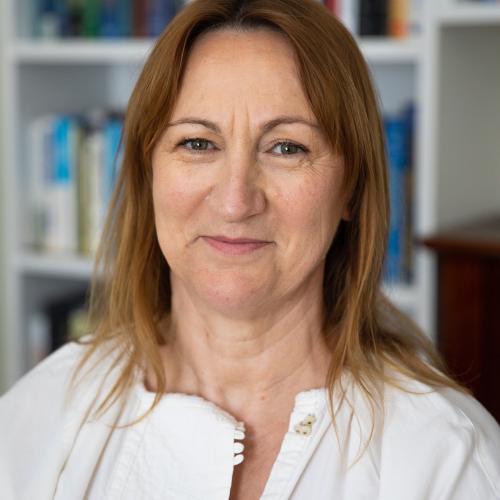
Nina Gjoci, PHD
Public Memory
Department/Office
- Communication Culture & Media Studies
School/College
- School of Communications
Biography
Nina Gjoci’s work focuses on the relationship of public memory to international development and media. Particularly, she observes public discourse about debatable historical accounts, places of memory, archives, media coverage, and related public policy. Her writings have been published in several journals and volumes. Her most recent work appears in E-REA Revue Électronique d'études sur le monde Anglophone (2021), Intercultural Public Remembering: Contesting Place, Space, and Memory (2021), and Journal of Intercultural Communication (2020).
She is currently investigating how remembering local and national trauma is primarily being shaped in interplay with international actors and political agendas. She examines how the tensions from the communist past in South East Europe are manifested in the reconciliation and justice reforms, the Cold War connections and conflicts, and the ways in which the totalizing discourse of Euro-Atlantic integration is instrumentalized to diffuse the memory of communist regimes’ crimes and their thousands of victims.
She has taught communication, media, and research methods courses at universities in the US and abroad.
Education & Expertise
Expertise
Academics
Academics
CCMS 752: Media Effects and Influence Processes
CCMS 725: Historical Research in Communication
CCMS 702: Qualitative Research Methods
CCMS 787: Communication, Peace, and Memory
Communication, Peace, and Memory studies the theories and methods for analysis of contemporary national and transnational dialogue on public memory, reconciliation, and peacemaking.
This course is essentially about traumatic pasts that haunt our collective conscious and, as a result, are continuously manifested in public efforts for reconciliation and justice.
We formulate communication research questions inspired by the following larger questions: How do societies remember traumatic national pasts? Why are restitution and lustration laws not enough? Why does conflict not end with settlements? How do we deal with transitional justice and collective guilt? And what does it take to reconcile? In this process of further inquiry, we find out that communication, peace, and memory are inherently connected. And that’s the lens we use to examine previous research and case studies throughout this course.
